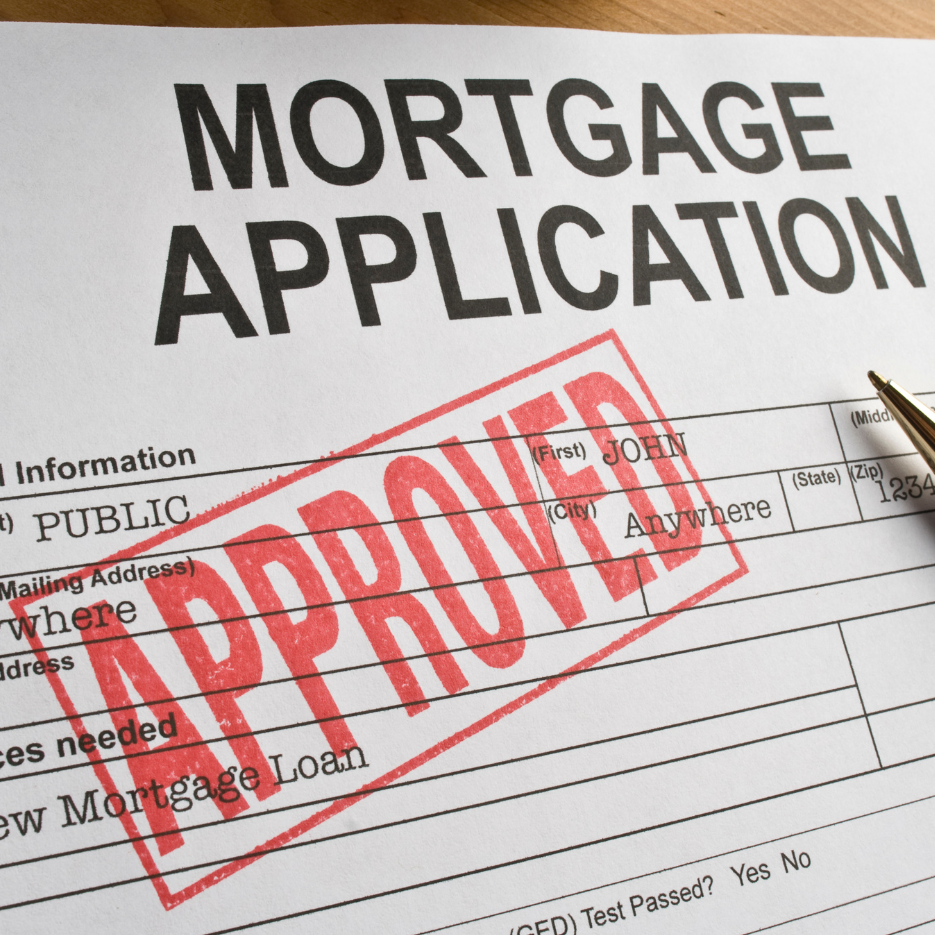Understanding the Importance of Budgeting for First-Time Homebuyers
Embarking on the journey to homeownership is an exhilarating yet daunting experience, particularly for first-time homebuyers. A cornerstone of this journey is the creation of a realistic and comprehensive budget. This essential tool acts as a roadmap, guiding prospective buyers through the complex financial terrain of purchasing a home. The importance of budgeting cannot be overstated, as it lays the foundation for a successful and stress-free home buying process.
The Foundation of Financial Stability
Budgeting is not merely about crunching numbers; it is about understanding and managing your financial limits. It encompasses a thorough assessment of income, expenses, and savings. For first-time buyers, establishing a budget helps delineate what is financially feasible, ensuring that the dream of homeownership does not turn into a financial nightmare. A well-crafted budget allows buyers to determine their price range, factoring in down payments, closing costs, and potential home maintenance expenses.
Anticipating Hidden Costs
Moreover, budgeting assists in anticipating hidden costs that often catch first-time buyers off-guard. These may include property taxes, homeowner’s insurance, and possible homeowners association fees. By accounting for these expenses early on, buyers can avoid unpleasant surprises that might strain their finances post-purchase.
In conclusion, budgeting serves as a critical safety net, providing clarity and confidence throughout the home buying process. It empowers first-time homebuyers to make informed decisions, ensuring that their foray into homeownership is both financially sound and rewarding.
What to Know About Different Types of Home Loans
As a first-time homebuyer, navigating the myriad of home loan options can feel overwhelming. However, understanding the different types of home loans available is crucial to making an informed decision that aligns with your financial situation and future plans. Home loans, or mortgages, come in various shapes and sizes, each with unique benefits and conditions. Below is a breakdown of the primary types of home loans to consider:
Fixed-Rate Mortgages
Fixed-rate mortgages are perhaps the most straightforward option. They offer a stable interest rate over the life of the loan, typically 15 or 30 years. This stability means your monthly payments remain the same, providing predictability and ease in budgeting. This type of loan is ideal for individuals who plan to stay in their home long-term and prefer financial consistency.
Adjustable-Rate Mortgages (ARMs)
Unlike fixed-rate loans, adjustable-rate mortgages start with a lower initial interest rate that can fluctuate over time based on market conditions. ARMs may be appealing if you plan to sell or refinance before the interest rate adjusts, potentially offering savings initially. However, the uncertainty of future rate increases poses a risk that requires careful consideration.
Federal Housing Administration (FHA) Loans
FHA loans are government-backed and designed to assist first-time homebuyers or those with lower credit scores. They often require lower down payments, making them accessible even if you don’t have substantial savings. Yet, these loans come with mandatory mortgage insurance premiums, which can add to your overall costs.
Veterans Affairs (VA) Loans
VA loans are available to eligible veterans, service members, and spouses, offering several advantages. With no down payment requirements and competitive interest rates, VA loans are an excellent choice for those who qualify. Additionally, they typically do not require private mortgage insurance (PMI), further reducing monthly expenses.
Understanding these options and how they align with your personal and financial goals will empower you to choose the right path toward homeownership. Carefully consider each loan’s terms, benefits, and potential downsides, and consult with a trusted financial advisor or mortgage broker to ensure you make a decision that supports your long-term financial health.
How to Determine the Right Mortgage for You
Embarking on the journey of homeownership can be both exhilarating and overwhelming, particularly when it comes to selecting the right mortgage. Understanding the nuances of different mortgage options is crucial to making an informed decision that aligns with your financial goals and lifestyle. Here’s how you can determine the most suitable mortgage for your needs:
Understand Mortgage Types
Mortgages generally fall into two main categories: fixed-rate and adjustable-rate. A fixed-rate mortgage offers stability with consistent monthly payments, ideal for those planning to settle long-term. In contrast, an adjustable-rate mortgage (ARM) starts with lower initial payments, which can increase over time. Consider an ARM if you anticipate a significant income rise or plan to move before the rate adjusts.
Assess Your Financial Situation
Your financial health is paramount in choosing a mortgage. Evaluate your credit score, debt-to-income ratio, and savings. These factors influence the interest rate and terms offered by lenders. A solid financial standing might qualify you for more attractive rates, reducing long-term costs.
Consider Loan Term Lengths
Mortgage terms typically range from 15 to 30 years. While a 15-year mortgage entails higher monthly payments, it can save you thousands in interest over time. Conversely, a 30-year mortgage offers lower payments but accumulates more interest. Select a term that fits your budget and long-term financial strategy.
Ultimately, choosing the right mortgage involves a delicate balance of understanding your financial capacity, future plans, and the intricacies of available mortgage options. By carefully analyzing these elements, you can secure a mortgage that not only facilitates the purchase of your dream home but also supports your financial well-being over the years.
The Role of a Real Estate Agent in the Buying Process
Embarking on the journey to homeownership can be an exhilarating yet daunting experience, especially for first-time buyers. In this intricate process, a real estate agent emerges as a pivotal ally, guiding you through the myriad complexities of purchasing a home. Understanding their role is crucial to making informed decisions and ensuring a smooth transaction.
Guidance and Expertise
A seasoned real estate agent brings a wealth of expertise and knowledge about the housing market, which can be indispensable when navigating the nuances of property buying. They possess the acumen to identify potential pitfalls and opportunities, offering insights that are not readily apparent to the untrained eye. This expertise is particularly beneficial when evaluating property prices, understanding market trends, and negotiating deals.
Access to Resources
Real estate agents have access to a vast network of resources and connections, from mortgage lenders to home inspectors, which can streamline the buying process significantly. They can recommend trusted professionals who can assist in various aspects of the transaction, ensuring every detail is meticulously handled.
Negotiation Skills
One of the most critical roles an agent plays is that of a negotiator. With their adept negotiation skills, they can advocate on your behalf to secure favorable terms and conditions. Whether it’s negotiating the sale price or contingencies, their expertise can be the difference between a good deal and a great one.
Paperwork and Legalities
The home buying process is laden with paperwork and legal intricacies. A real estate agent ensures that all documents are accurately completed and filed, safeguarding you from potential legal issues. They simplify complex legal jargon, making sure you understand every aspect of the transaction.
In conclusion, a real estate agent’s role is multifaceted, encompassing guidance, resource management, negotiation, and legal support. Their involvement not only eases the burden of home buying but also provides peace of mind, allowing you to focus on finding the perfect home.
Questions to Ask About the Local Housing Market
Embarking on the journey to homeownership comes with its fair share of excitement and challenges. One of the pivotal steps in this process is gaining a comprehensive understanding of the local housing market. As a first-time homebuyer, asking the right questions about the market can provide invaluable insights that steer your decision-making towards a sound investment. Here are some essential questions to consider:
Current Market Conditions
- What are the current trends in the housing market? Understanding whether the market is favoring buyers or sellers can guide your timing and negotiation strategies. Are prices rising, stable, or declining?
- How long do homes typically stay on the market? This question helps gauge the competitiveness of the market. A short average time may indicate a high demand, pressing the need for swift decision-making.
Future Market Predictions
- What are the anticipated developments in the area? New infrastructure, commercial projects, or schools can positively impact property values. It’s wise to inquire about any upcoming changes that might affect your potential investment.
- Is there a possibility of a market downturn? Understanding economic forecasts can aid in evaluating the risk factors associated with your purchase.
Neighborhood-Specific Insights
- How does this neighborhood compare to others in terms of property values? This helps identify if you’re looking at a booming area or one that might be stagnating.
- What are the crime rates and school ratings? These factors significantly influence the desirability and value of a neighborhood, impacting your living experience and potential resale value.
By posing these pertinent questions, you arm yourself with the knowledge needed to navigate the complexities of the housing market effectively. Each query helps paint a clearer picture of the local real estate landscape, ultimately leading to a more informed and confident homebuying decision.





